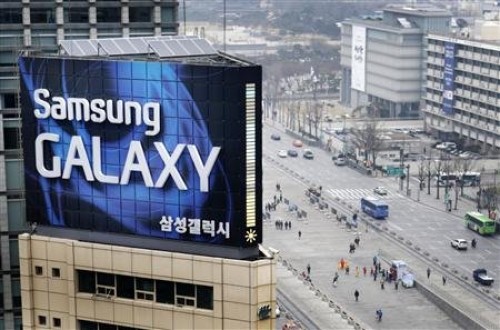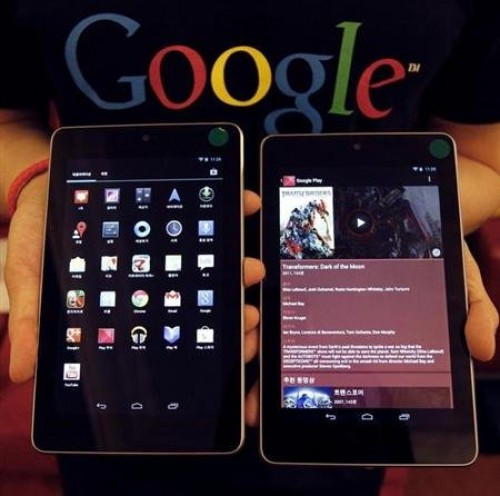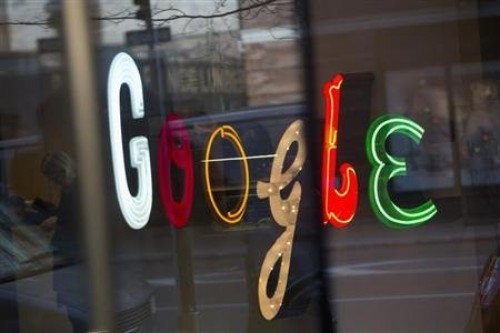By Poornima Gupta and Ronald Grover
SAN FRANCISCO (Reuters) - Technology giants Apple, Google and Amazon are furiously maneuvering for position in the online music business and looking at ways to make streaming profitable, despite the fact that pioneer Pandora has never made a profit.
It has been more than a decade since the iPod heralded the revival of Apple and presaged the smartphone revolution, even as music-sharing site Napster was showing the disruptive power of the Internet in the music business.
Now Google, Amazon.com Inc and Apple are among the Silicon Valley powerhouses sounding out top recording industry executives, according to sources with knowledge of talks and media reports. Streaming service Pandora is spending freely and racking up losses to expand globally. Even social media stalwarts Facebook and Twitter are jumping on the bandwagon.
All of them see a viable music streaming and subscription service as crucial to growing their presence in an exploding mobile environment. For Google and Apple, it is critical in ensuring users remain loyal to their mobile products.
Music has been integral to the mobile experience since the early days of iTunes, which upended the old models with its 99-cent per song buying approach. Now, as smartphones and tablets supplant PCs and virtual storage replaces songs on devices, mobile players from handset makers to social networks realize they must stake out a place or risk ceding control of one of the largest components of mobile device usage.
About 48 percent of smartphone users listen to music on their device, making it the fourth most popular media-related activity after social networking, games and news, according to a ComScore survey of mobile behavior released in February. Users ranked a phone's music and video capability at 7.4 on a scale of 1 to 10, with 10 being most important purchase consideration factor, according to the study.
"Music is very strategic for the various electronic devices Samsung manufactures," said Daren Tsui, CEO and co-founder of streaming music service mSpot, which Samsung bought last year to create the Music Hub service now available on Galaxy smartphones in the United States and Europe.
"By owning it, we can absolutely customize the music experience and leverage the fact that it's not just a service but there's also a hardware component."
In January, Beats Electronics, the startup co-founded by recording supremo Jimmy Iovine and hip-hop performer-producer Dr. Dre, and backed by Universal and Warner Music, announced a new streaming-subscription service dubbed "Daisy" to take on Pandora and Spotify starting this summer.
Now, industry insiders expect Apple, Google and other technology titans to jump into the fray. Apple is talking with music labels about tacking a subscription service option onto iTunes, sources have said, while Google is said to be planning a YouTube subscription music service, according to media reports.
"There are some content creators that think they would benefit from a subscription revenue stream in addition to ads, so we're looking at that," a YouTube spokesperson said, but declined to comment on any specific negotiations.
Apple declined to comment.
Microsoft is already promoting its Xbox Music service. Their entry promises to catalyze an industry shake-up and propel music streaming further into the mainstream.
"ITunes was great but it needs a step forward," Iovine, chairman of Universal Music's Interscope-Geffen-A&M Records, told the AllThingsD conference in February. "There is an ocean of music out there that people want."
MOBILE MUSIC LOVERS
Music streaming, or playing songs over the Internet, has in recent years begun to come into its own as listeners increasingly choose to stream songs from apps like Pandora via their smartphones, rather than buy and store individual tracks.
The ad-free subscription model, where consumers pay a flat fee for near-unlimited listening time, is relatively new and quickly gaining popularity.
Pandora, one of the pioneers, is now trying to convert users of its free ad-supported radio service into subscribers. It says mobile users account for more than two thirds of its music, up from just 5 percent of listener-hours three years earlier.
Subscription services are expected to have crossed the 10 per cent mark as a share of total digital music revenues in 2012 for the first time, according to a recent report from the International Federation of the Phonographic Industry, which represents the recording industry worldwide.
Consumers spent $5.6 billion worldwide for digital music in 2012, an increase of 9 percent, offsetting the decline in CDs and other physical ways to provide music. That gave the industry its best growth since 1998, albeit a miniscule 0.3 percent, according to the IFPI.
Pure buyers "have to spend hundreds of dollars a month on music, which most people can't afford to do," Spotify founder and CEO Daniel Ek told Reuters in an interview last week at South-by-Southwest Interactive. "It's pretty obvious that the access model or the subscription model is a much better proposition for most people."
U.S. consumers will stream an estimated 100 billion tracks this year, says David Bakula, senior vice-president for client development and analytics for Nielsen Entertainment.
"The big question is who has the business model to make it work," said Bakula, a former executive at Universal Music, one of the four major music labels. "The first ones in the market may not be the winners."
Apple CEO Tim Cook recently met with Iovine and other Beats executives to find out more about that business. It is unclear if Apple will join Beats' Project Daisy.
SHOW ME THE MONEY
Making money off music streaming is difficult. Leading players Pandora and Spotify, despite attracting hundreds of millions of dollars in financing and millions of subscribers, have never reported a cent of profit.
No less a personage than Steve Jobs himself was a skeptic.
"Never say never, but customers don't seem to be interested in it," the late Apple co-founder and online music visionary told Reuters in a 2007 interview. Apple's current executives have not publicly stated their views on streaming music.
Pandora, which went public in 2011, now has 67 million monthly listeners worldwide - a 41 percent jump from a year ago - together listening to more than 13 billion hours of music.
But its losses more than doubled to $38.1 million in the year to January 31, 2013, hurt by the high cost of standard streaming licenses that typically have a per-track royalty model. This has forced Pandora, which relies mainly on advertising for revenue, to cap free mobile listening at 40 hours per month.
It and other music services such as Clear Channel Communications' iHeartRadio are now urging lawmakers in the U.S. Congress to pass the "Internet Radio Fairness Act," which would set royalty rates for subscription music services using the same standard that has so far been applied to other forms of radio.
But a group of 125 musicians, including Billy Joel and Rihanna, are speaking up against it, arguing that the bill would cut by 85 percent the amount of money an artist receives when his or her songs are played over the Internet.
The issue of how recording labels and musicians will be paid is one of the biggest roadblocks to growth. Competition will almost certainly force a shakeout, with winners and losers.
That could accelerate once major technology companies like Amazon and Google flex their marketing muscles, not to mention Apple with its ability to leverage its enormous base of online music buyers. The California gadget giant is unlikely to cede its lead in selling music without a fight.
While streaming could undercut sales of music tracks, Apple has always maintained that if there is potential for cannibalization of its products, the gadget maker would rather be in charge than let others in on it.
Finally, Microsoft has a large audience of Windows and Xbox players to whom it can promote Xbox Music Pass, a $9.99 a month service it launched in October. The software giant has declined to talk about its future plans in this area.
Bring it on, says Ek from Spotify.
"It's rare that gigantic companies figure out a new way to do something peripheral," Ek said. "I don't believe the world will only be controlled by a Google or an Apple. It will be companies who are great at games like EA, at films like Netflix, or at music like Spotify."
(Additional reporting by Gerry Shih in San Francisco; Editing by Claudia Parsons)





























